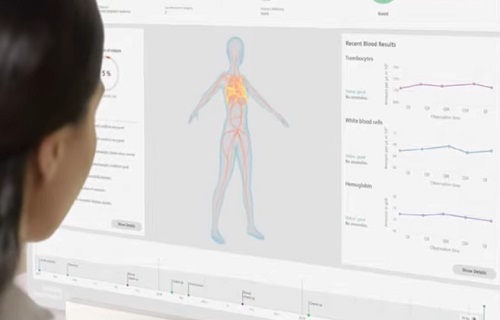A heart attack is a disease that occurs due to the sudden decrease or interruption of blood flow in the vessels feeding the heart, resulting in cell death in the heart muscles. One of every 5 sudden deaths is due to a heart attack. When hearth attack occurs, you must go to the hospital as soon as possible so that the patient does not die. You never know when or who will have a heart attack. Most heart attacks are caused by a blood clot in the coronary arteries. Hypertension, hypercholesterolemia, diabetes, smoking and having a family history of heart attack at an early age are factors that increase the risk of heart attack.


Chest pain behind the breastbone is the biggest symptom of a heart attack. Especially in diabetes patients and the elderly, pain may be very little or not felt. Pain: severe, like pressure, radiating from the chest to the shoulder or arms, or to the back of the neck, teeth, jaw, abdomen and back. It can be felt in only one of these areas. The pain usually lasts more than 20 minutes and rest does not stop the pain. Along with the pain, there is a cold sweat and fear of death. In addition, symptoms such as shortness of breath, cough, dizziness, fainting, nausea and vomiting may occur. If the symptoms are not taken into account, the heart disease will gradually worsen. During a heart attack, a sudden weakness and a decrease in blood pressure are experienced, the person who has the attack cannot move and remains inactive. In these patients, they often press on their chest, kneel, and fall suddenly. The person who has a crisis cannot shout for help, so those around him must be careful.
A heart attack, also known as a myocardial infarction, is a serious medical emergency in which the blood supply to the heart is blocked, resulting in damage to the heart muscle. Heart attacks are typically caused by the build-up of plaque in the arteries that supply blood to the heart, which can rupture and cause a blood clot to form. Risk factors for heart attack include high blood pressure, high cholesterol, smoking, diabetes, and a sedentary lifestyle.
To reduce your risk of having a heart attack, it is important to adopt a healthy lifestyle. This includes eating a balanced diet that is low in saturated fat and cholesterol, getting regular physical activity, and avoiding tobacco products. Maintaining a healthy weight and managing stress can also help to lower your risk of heart attack. If you have a history of heart disease or are at high risk of having a heart attack, your doctor may recommend medications to help reduce your risk. It is also important to know the signs and symptoms of a heart attack and to seek medical help immediately if you think you or someone else is having a heart attack.
When symptoms of heart attack are felt, one should sit down, definitely not continue to climb stairs or walk. Because continuing the activity will increase the oxygen need of your heart, which can not receive oxygen already. Usually, the quickest solution is to take two or three aspirins and chew them, as the heart vessels are clogged with clots. Aspirin dilutes the blood and accelerates blood flow. Thus, the effect of a possible vascular occlusion is reduced. When we are having a heart attack or see someone else having a heart attack, it is very important to stay calm and call emergency services immediately. Because early diagnosis and intervention is very important in heart attack.
If you think you or someone else is having a heart attack, it is important to seek medical help immediately. Call 911 or your local emergency number right away. Do not drive yourself to the hospital. While waiting for help to arrive, sit down and try to remain calm. If the person is conscious, have them chew and swallow one adult-strength aspirin, unless they are allergic to aspirin or have been told by their doctor not to take it. If the person is unconscious or not breathing, start CPR if you are trained to do so. Continue CPR until help arrives or the person starts breathing on their own again. It is important to act quickly in a heart attack because every minute counts. Getting medical help as soon as possible can save lives and reduce the damage to the heart.
Some of important findings are necessary for the diagnosis of a heart attack:
- Patient’s complaint: Chest pain is usually experienced. Most people who have a heart attack will have changes in their ECG (electrocardiogram). An ECG is often performed to detect these changes.
- Blood tests done in laboratories are very useful and necessary for diagnosing a heart attack.
A heart attack is an emergency and requires immediate attention. It requires hospitalization and intensive care follow-up. The goals of treatment are: to stop the progression of the heart attack, to minimize the damage to the heart, to meet the needs of the heart so that it can heal, and to prevent complications. Recently, with the technological developments, intervention to patients who have had a heart attack and the hospital stay of these patients have been shortened considerably.
We need to take some measures to prevent recurrence of heart attack and to protect against heart attack.
- Blood pressure should be measured at regular intervals, if it is high, you should use the drugs recommended by your doctor.
- In those with diabetes, the blood sugar level should be controlled and you should use the drugs recommended by your doctor.
- Cholesterol level should be controlled, smoking should be stopped, excess weight should be lost. Every day or at least 5 days a week, you should exercise according to your body structure and eat healthy.
Healthy and happy days for you.

